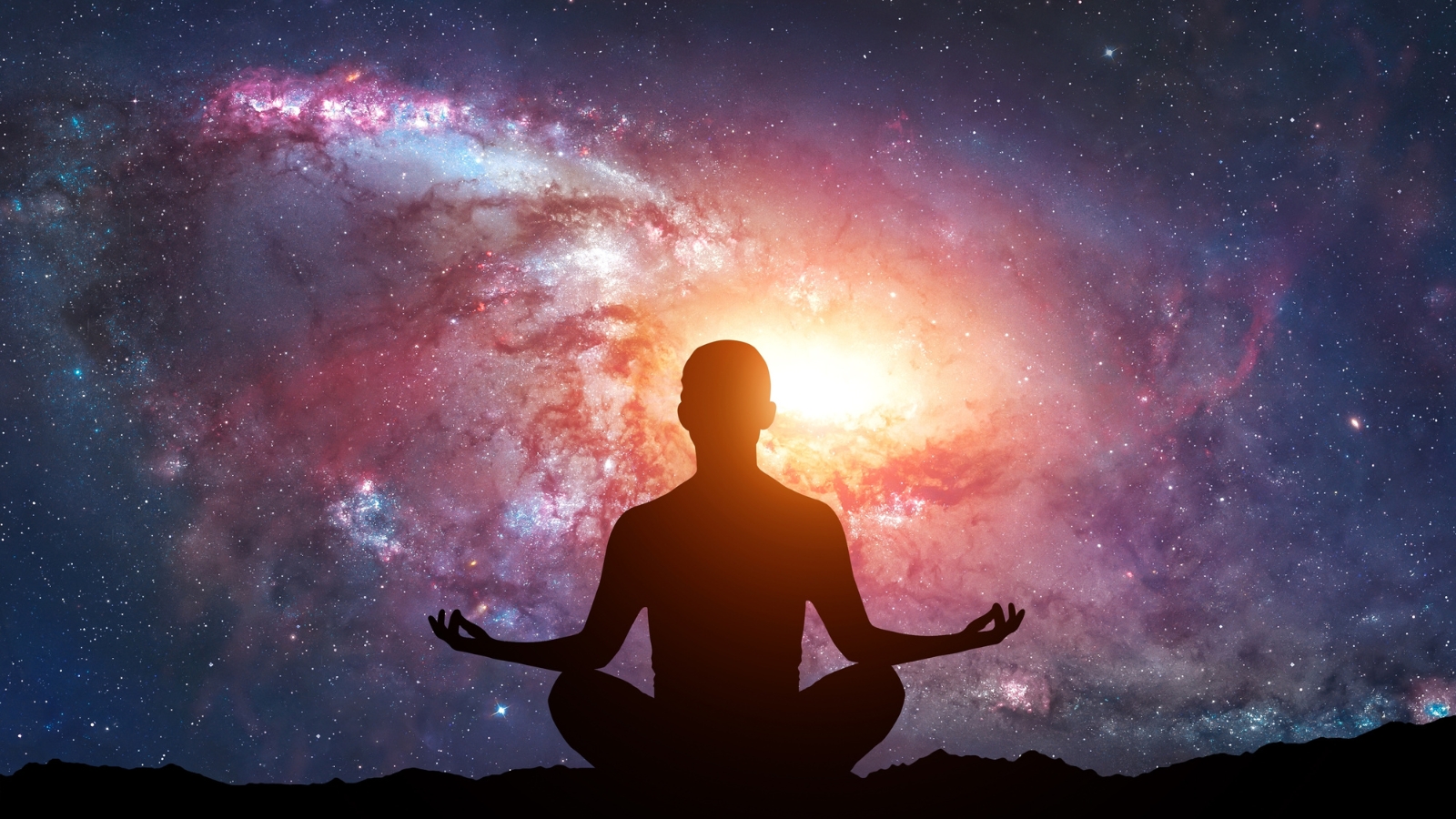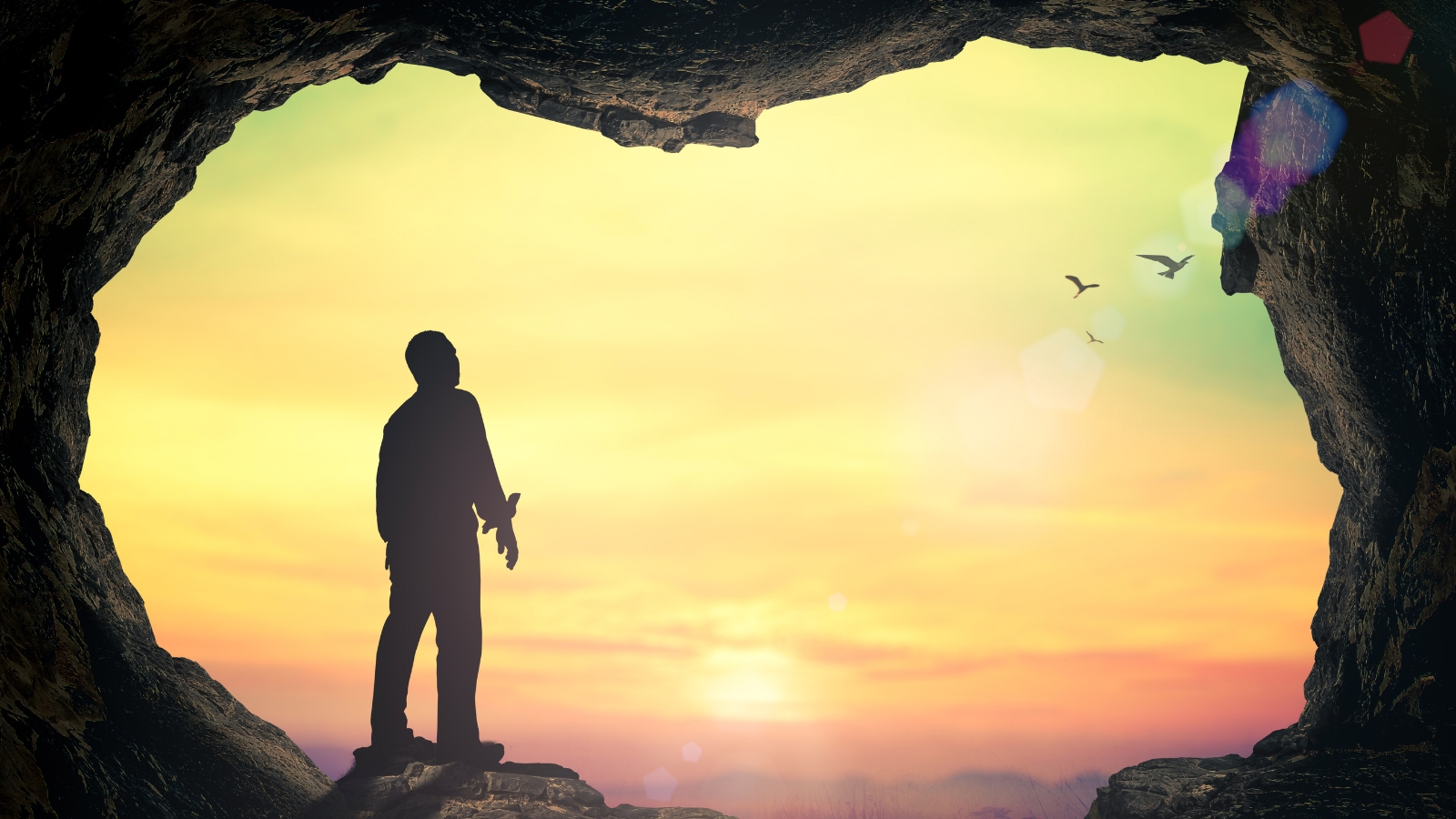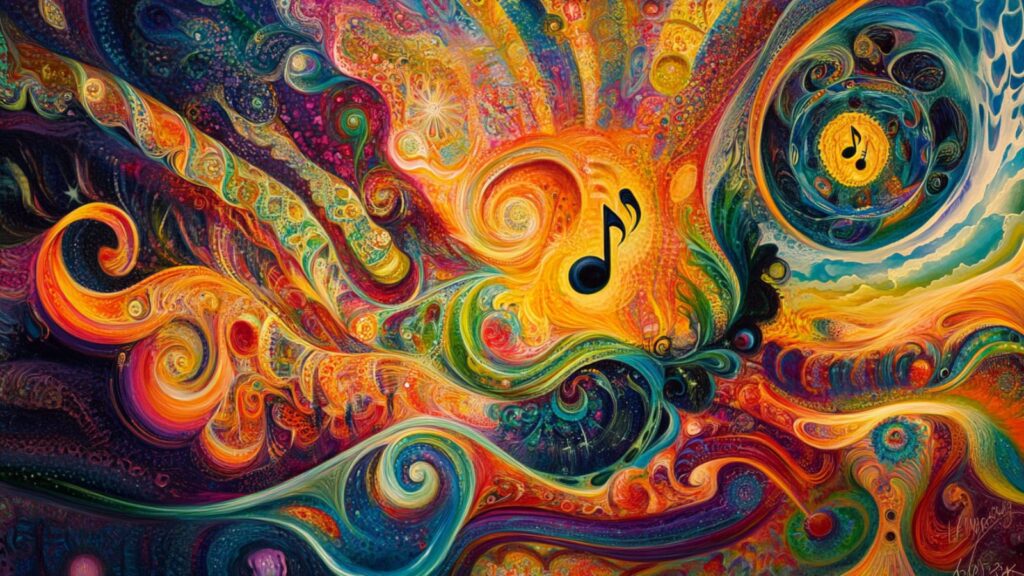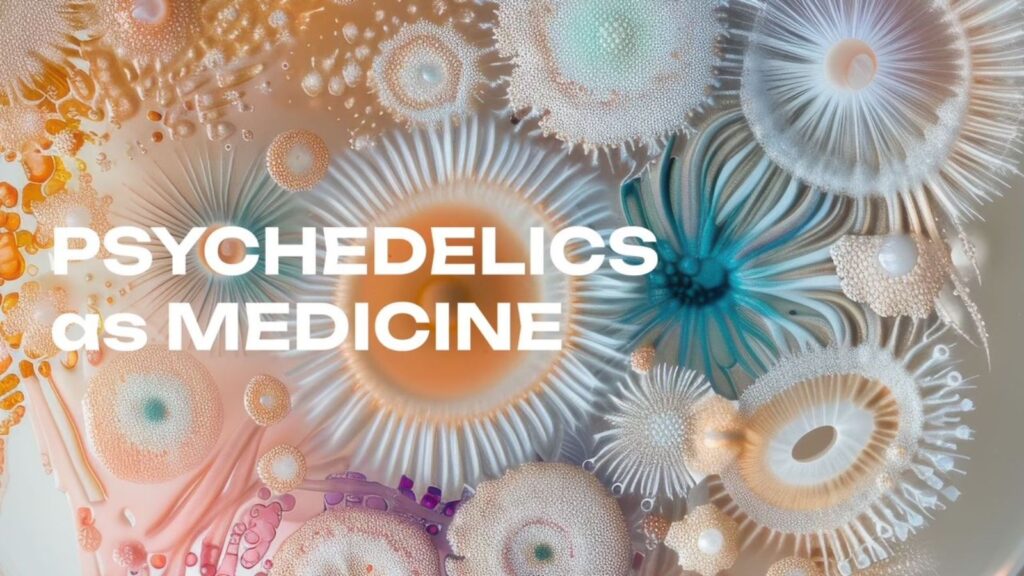Pause. Imagine a society where psychedelic sessions are more than just weekend escapades. Picture a world where these mystical journeys are understood, valued, and harnessed not just for their mental and spiritual benefits, but for their ability to reconnect us with something profoundly sacred. Imagine this integration of psychedelics with spiritual practice as a norm, not an outlier.
Envision a society that doesn’t just view these benefits in isolation, but sees the intricate web that links our hearts, our minds, and our very souls to the pulse of the universe.
In this world, to preserve our inner peace, we must also cherish the earth that cradles us. Saving the planet isn’t just about staving off physical destruction; it’s about rescuing our very spirit from the brink of oblivion.
Consider, for a moment, a society that grasps the gravity of these interconnections and is bold enough to explore the once unthinkable—a society that sees the revitalization of faith through entheogens as a viable, urgent solution to the profound disillusionment of our times.

The Ancient Bond: Psychedelics and Religion
Psychedelics have long been allies of the divine—this much is known by all who realize the long and intertwined history of these sacraments and substances. Regardless of the begrudgingly extensive and ceaselessly extended wait times needed by Western institutes to admit this, psychedelics have held a pivotal tenure within the space that binds bonafide religious experience and those seeking spiritual fulfillment.
These substances are not mere relics; they’re sacred conduits that connect the seeker to the divine. They unravel the boundaries between the mundane and the mystical, guiding us to experiences of unity, transcendence, and profound connection with the sacred.
Even beyond serving solely as catalysts for religious experiences, scholars have long discussed their part in the genesis of some religions. This isn’t just speculative; it’s backed by evidence from indigenous cultures and sacred texts.
The Shipibo people of the Amazon use ayahuasca to commune with spirits [1], while the Bwiti of Gabon connect with the divine through iboga [2]. Even in the Abrahamic traditions, there are hints of psychedelic encounters with the divine, like the burning bush in the Bible, which some scholars suggest may have been an entheogenic experience centered at the inception of these belief systems [3].
For decades, academics have explored the idea that psychedelics can trigger deeply spiritual experiences, reinforcing the notion that these substances might be at the core of religious awakening [4]. This concept has gained traction, revealing the transformative power of psychedelics to foster a direct connection with the sacred, something that is becoming increasingly evident as we look at historical and contemporary religious practices involving these substances [5].

A Crisis of Faith in the Modern West
Fast forward to today’s world, where the “Psychedelic Renaissance” isn’t just a fringe movement but a burgeoning revolution in how we perceive spirituality. Modern religions are dusting off the cobwebs and integrating these ancient tools of divine communion into contemporary worship.
In the U.S., churches like Santo Daime and União do Vegetal are legally recognized to use ayahuasca as a sacrament. These movements underscore a growing acknowledgment of psychedelics’ potential to foster profound spiritual experiences and deepen religious understanding.
Take a look at Christianity through the lens of Brian Muraresku’s The Immortality Key. It’s not just a history lesson but a roadmap, suggesting that the reintegration of entheogenic sacraments could reignite the flames of modern faith [6]. Rabbi Zac Kamenetz’s Shefa aims to weave psychedelics into Jewish spiritual practice, showing that the bridge between ancient tradition and modern spirituality is already being crossed.
Those brave enough to champion this fringe and daring field are addressing the glaring void of faith caused by the lack of direct, first-hand religious experience.
The malaise—the growing pain and discomfort—is difficult to identify, but it sits uneasily upon us like a widening chasm growing only ever larger since the advent of modern times. That which was once cured by the comfort and existential peace provided by religious practices is now being re-addressed.
The spiritual deficit that contributes to the many societal woes afflicting modern-day, technological society, from alienation and existential despair to a lack of moral and ethical grounding and even environmental abandonment and disregard, has the chance to be remedied by the substances we once shunned.

Psychedelics: A Bridge to Reignite Faith
Organized religion in the West often revolves around secondary religious experiences—reading about divine encounters rather than experiencing them firsthand. This lack of direct spiritual engagement has resulted in a widespread yearning for a deeper connection with the divine. Many voices are calling for a spiritual renewal to tackle the profound issues facing humanity, yet the traditional pathways seem inadequate to meet this urgent need.
Psychedelics offer a unique solution to this crisis of faith. Research indicates that these substances can rekindle religious feelings, especially among those with a background or interest in spirituality or established religion [7].
A study involving participants from psychedelic-related communities found that those using psychedelics for religious purposes often reported profound mystical experiences, scoring higher on measures of mysticism compared to those without such motivations [8]. A study that highlights a curious and potentially useful propensity for psychedelics to inspire and, possibly even reinforce faith within those of past or present religious affiliation.
And one which raises an interesting question; “If the potential for spiritual renewal is not limited to indigenous traditions and if psychedelics could play a significant role in reviving faith within Abrahamic religions, which have seen a decline in adherents, why would we not consider utilizing these substances to renew these religions and reinstall the virtuous values which they preach within the greater populace and society?”
As suggested by Brian Muraresku and others, integrating psychedelics into religious practice is not a radical departure but a continuation of a long tradition of using entheogens to connect with the sacred.
“For so long were these substances the catalysts of faith, why could they not be that again?”
Brian C. Muraresku
Reawakening Moral and Ethical Values
Psychedelics also have the potential to revitalize our moral and ethical frameworks, which are often seen as eroding in modern society. The profound experiences of unity and interconnectedness they facilitate can lead to a reevaluation of personal values and a renewed commitment to ethical living. Studies have shown that such experiences can lead to significant improvements in moral outlooks and behaviors.
Brian D. Earp notes that psychedelics can enhance moral cognition by fostering empathy, compassion, and a sense of interconnectedness, which are critical components of moral development and ethical behavior [9].
Imagine a world where psychedelics help individuals transcend their egos, fostering a sense of oneness with all of existence. This could lead to more inclusive and compassionate practices rooted in the direct, transformative experiences of the sacred that psychedelics can provide.

The Synergy of Psychedelics and Spiritual Context
The relationship between psychedelics and spirituality is not a one-way street. It’s a complex, reciprocal dance where each element enhances and enriches the other. When used within a spiritual context, psychedelics do more than reinforce existing religious systems and values; they create a feedback loop that deepens the user’s overall spiritual experience and amplifies the benefits.
Those who engage with psychedelics for spiritual purposes often report profound, long-lasting impacts that extend beyond the immediate experience, fostering deeper connections to nature, heightened empathy, and a stronger sense of community.
“Science without Religion is lame; Religion without Science is blind.”
Albert Einstein
This synergy isn’t merely theoretical—it’s backed by extensive research and personal testimonies. A comprehensive study involving 319 individuals from Western countries, who identified with a diverse range of spiritual and religious traditions, revealed that psychedelics, when used with spiritual intent, tend to elicit experiences characterized by profound joy, peace, love, and significant personal insights.
The most common motivations for using these substances were personal growth and spirituality, which highlights the users’ intent to integrate these experiences into their broader life narratives and spiritual practices [10].
Furthermore, participants who engaged in entheogenic practices within a spiritual framework reported more significant long-term benefits. These benefits included enhanced connections to nature, increased feelings of empathy, and a strengthened sense of community. The data suggest that spiritually motivated users are more likely to experience mystical states, such as ego dissolution and unity with a higher power, leading to more positive and enduring outcomes [10].
This highlights the importance of the spiritual context in maximizing the therapeutic potential of psychedelics while also leaving us with an intriguing question and dynamic: “In order for us to fully realize the therapeutic capabilities of these substances, will the spiritual and, indeed, religious inclinations that they inspire become an unavoidable by-product? Are these two inextricably linked? Is a society healed also a society faithful?”

A Call to Action: Psychedelics in the West
Muraresku’s The Immortality Key explores the historical use of psychedelics in early Christian rituals and proposes their integration into modern religious practices. He suggests that psychedelics could be key to a religious reformation, making direct, mystical experiences of the divine more accessible to believers today [6].
This aligns with other contemporary efforts to incorporate psychedelics into established religious frameworks, such as the work of Rabbi Zac Kamenetz with Jewish spirituality and the legally recognized use of ayahuasca in certain Christian denominations, while also pushing a call to action. Will the likes of Muraresku and Rabbi Zac Kamenetz be joined by others who see the necessity to once again bind Western religion to direct, first-hand experience of the divine?
Afterall, Muraresku’s vision is not about creating a new religion but about revitalizing Christianity by reconnecting it with its mystical roots. By reintroducing entheogens as sacraments, we could see a resurgence of faith that not only enriches individual lives but also addresses the broader spiritual crisis afflicting the West.
To close and conclude, I would like to pose one final question: “In order to truly remedy the psychological, mental, and spiritual malaise that afflicts the West, is the reintegration and binding of psychedelics, health, and religion unavoidable? Is a society healed indeed a society faithful?
Bibliography
- Winkelman M. Shamanism: A biopsychosocial paradigm of consciousness and healing. Santa Barbara: Praeger; 2010. p. 49-51.
- Fernandez JW. Bwiti: An ethnography of the religious imagination in Africa. Princeton: Princeton University Press; 1982. p. 76-78.
- Brown L, Brown E. The Psychedelic Gospels: The secret history of hallucinogens in Christianity. Rochester: Park Street Press; 2016. p. 102-104.
- Barrett FS, Griffiths RR. Classic Hallucinogens and Mystical Experiences: Phenomenology and Neural Correlates. Curr Top Behav Neurosci. 2018;36:393-430. doi: 10.1007/7854_2017_474. PMID: 28401522; PMCID: PMC6707356.
- Shanon B. The Antipodes of the Mind: Charting the phenomenology of the ayahuasca experience. Oxford: Oxford University Press; 2002. p. 188-190.
- Muraresku B. The Immortality Key: The secret history of the religion with no name. New York: St. Martin’s Press; 2020. p. 132-135.
- Roberts, T.B. Psychedelics and Spirituality: The Sacred Use of LSD, Psilocybin, and MDMA for Human Transformation. Rochester: Park Street Press; 2020. 320 p.
- Neitzke-Spruill L, Glasser C. A Gratuitous Grace: The Influence of Religious Set and Intent on the Psychedelic Experience. J Psychoactive Drugs. 2018 Sep-Oct;50(4):314-321. doi: 10.1080/02791072.2018.1494869. Epub 2018 Jul 27. PMID: 30052496.
- Earp BD. Psychedelic Moral Enhancement. Royal Institute of Philosophy Supplement. 2018;83:415-439. doi:10.1017/S1358246118000474
- Johnstad, P. (2022). Entheogenic Spirituality: Characteristics of Spiritually Motivated Psychedelics Use. The International Journal for the Psychology of Religion, 33(4), 380–396. https://doi.org/10.1080/10508619.2022.2148060













